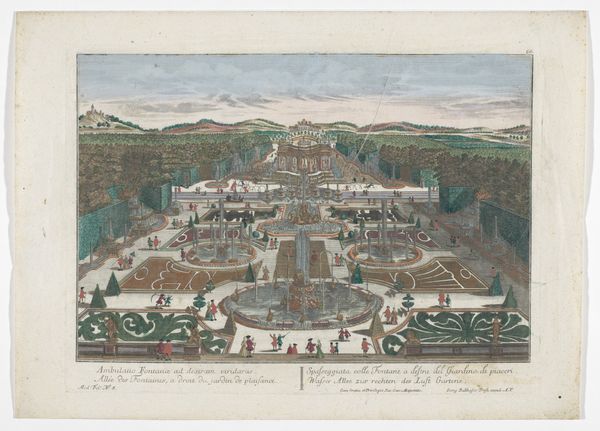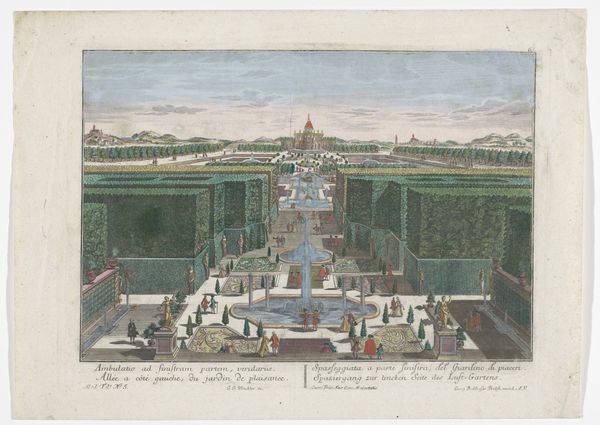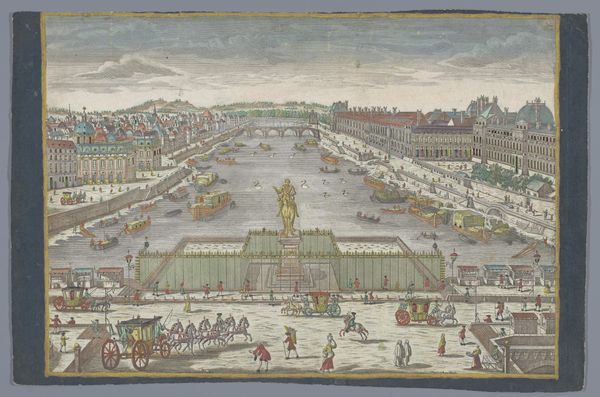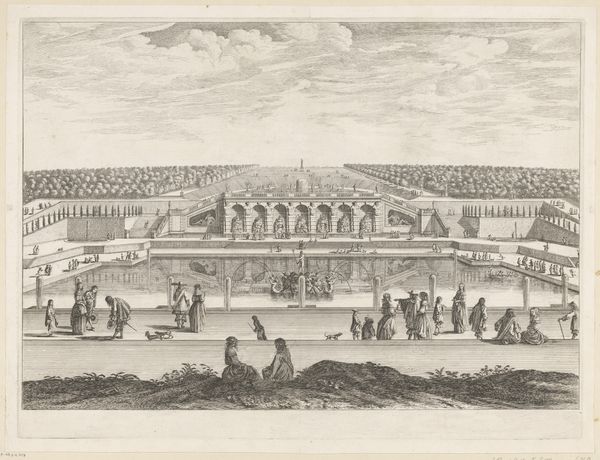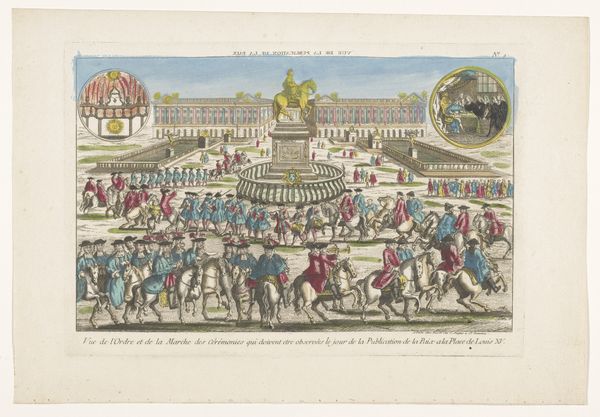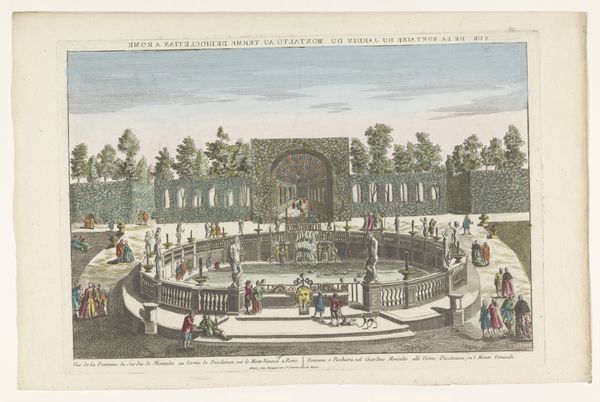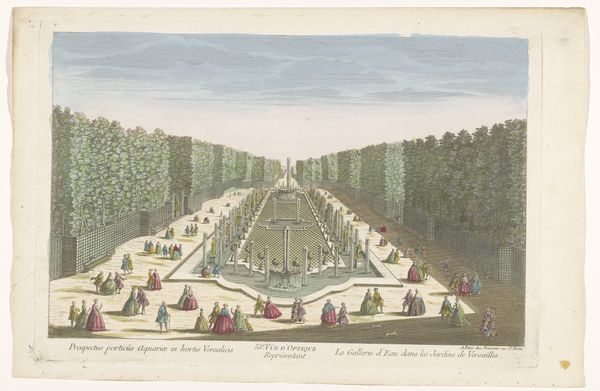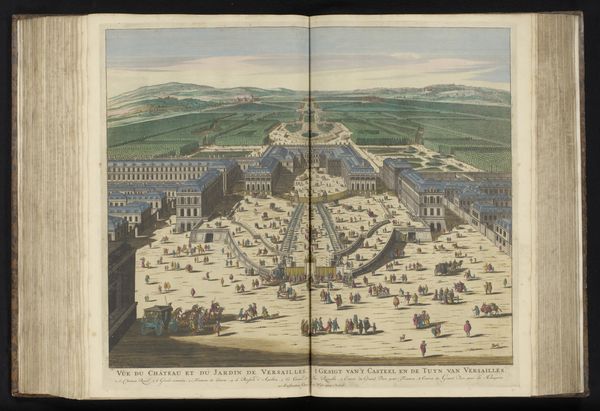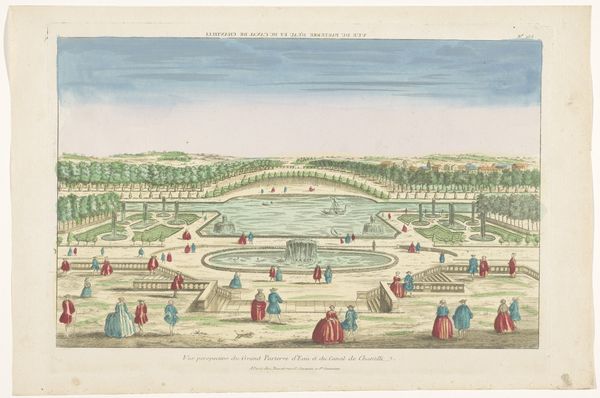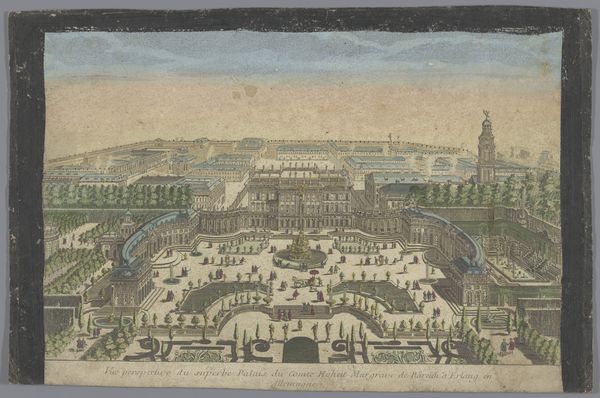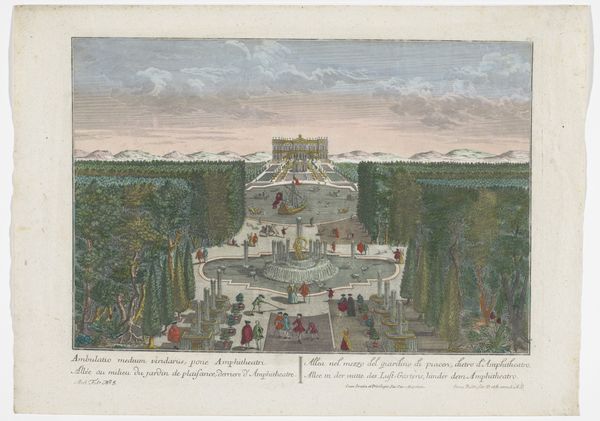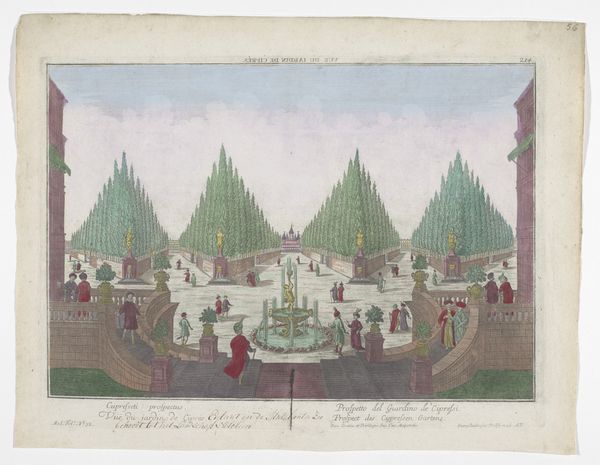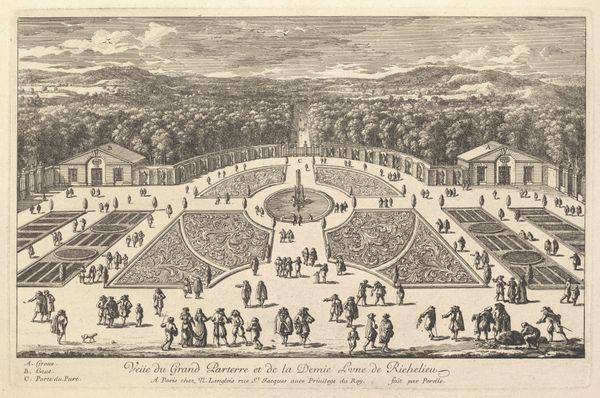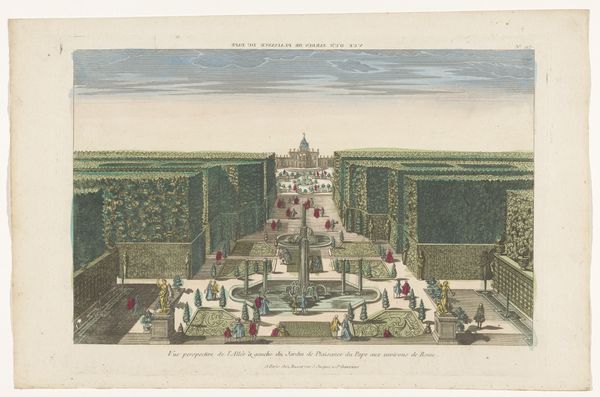
Dimensions: height 308 mm, width 422 mm
Copyright: Rijks Museum: Open Domain
Georg Balthasar Probst created this print of a garden cascade using engraving techniques in the 18th century. The scene suggests much about the cultural aspirations of the time. Here, the formal garden is designed around controlling nature to express power, wealth and influence. Consider the labyrinth, for instance, a fashionable garden feature during the baroque period; these complex mazes served as both entertainment and a demonstration of intellectual prowess, reflecting the period's emphasis on reason and order. Germany, where Probst was active, was undergoing significant political and social changes during this time, with various states competing for cultural prestige, which perhaps explains the artist's preoccupation with status. The print hints at art’s role in shaping identity and expressing social hierarchies. To fully appreciate Probst’s print, one might look to period publications on garden design or aristocratic patronage. By understanding the artwork's context, we can better appreciate the complex relationship between art, power, and society.
Comments
No comments
Be the first to comment and join the conversation on the ultimate creative platform.
